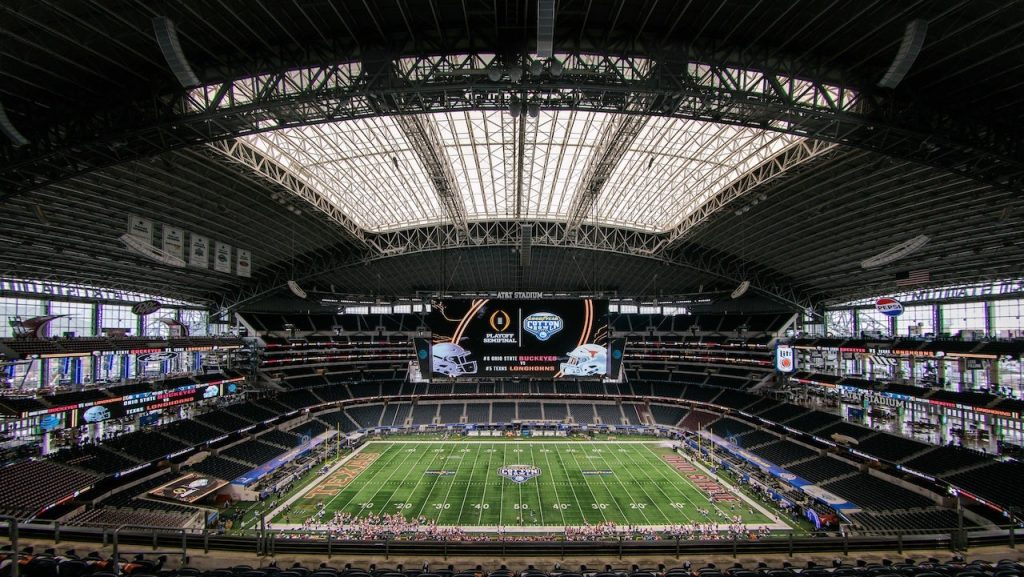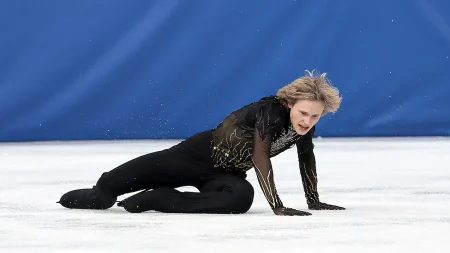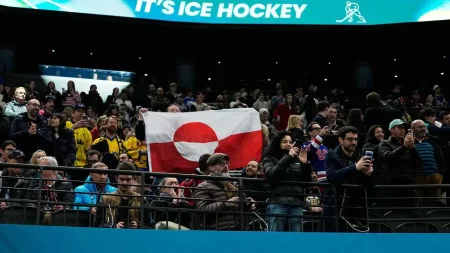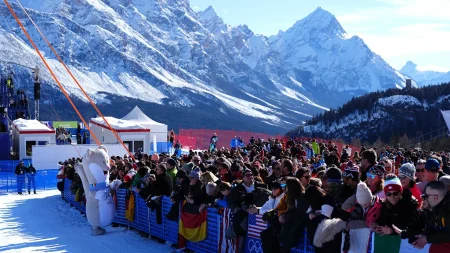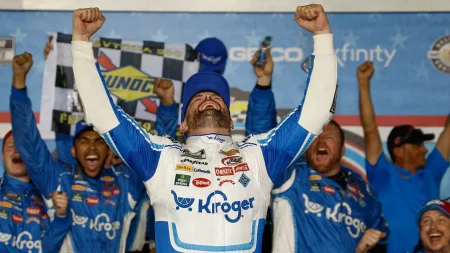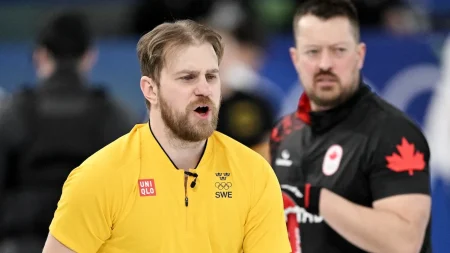The 89th Cotton Bowl Classic, played on Friday night between Ohio State and Texas, became a focal point of discussion not just for the on-field action but also for the pre-game events broadcast by ESPN. The network’s decision to air a prayer delivered by Fred McClure, former chair of the Cotton Bowl Athletic Association, drew attention in the wake of recent controversies surrounding the network’s handling of national anthem broadcasts. McClure’s prayer, offered immediately following a moment of silence for victims of the California wildfires and the New Orleans terrorist attack, invoked themes of safety, respect, and gratitude for the freedom to compete, while also acknowledging the societal barriers that prevent some from participating in sports. The prayer’s plea for divine intervention to address violence, poverty, and discrimination added a layer of social commentary to the traditionally celebratory atmosphere of a major sporting event.
The context surrounding the prayer broadcast is crucial to understanding its significance. Just days prior, ESPN faced intense criticism for omitting the national anthem broadcast before the Sugar Bowl, a game postponed from January 1st to January 2nd due to the terrorist attack in New Orleans. The ensuing backlash forced the network to air the anthem during a later “SportsCenter” broadcast, a gesture that many viewers deemed insufficient. This incident created a heightened sensitivity surrounding pre-game ceremonies and ESPN’s handling of them. The network’s subsequent decision to air both the prayer and the national anthem before the Orange Bowl and the Cotton Bowl can be interpreted as a response to the criticism and an attempt to regain public favor. The decision to broadcast the Cotton Bowl prayer, therefore, takes on a larger meaning within the ongoing conversation about patriotism, social responsibility, and the role of sports in reflecting societal values.
The inclusion of the prayer itself introduces another dimension to the discussion. While pre-game invocations are a common practice in many sporting events, their broadcast on national television inevitably raises questions about the separation of church and state and the appropriateness of religious expression in a public forum. The prayer’s content, which touched upon themes of social justice and inclusivity, further complicates the matter, potentially blurring the lines between religious observance and political commentary. By broadcasting the prayer, ESPN effectively amplified these complex issues, placing them squarely within the national conversation surrounding sports and social responsibility.
Adding further complexity to the narrative is Allstate CEO Tom Wilson’s controversial video statement addressing the New Orleans attack, aired just before the Sugar Bowl, for which Allstate was a sponsor. Wilson’s message, which called for unity and an end to divisiveness, was interpreted by many as a politicized response to the tragedy, leading to widespread criticism and calls for boycotts of Allstate. This incident, alongside ESPN’s handling of the national anthem broadcasts, contributed to a charged atmosphere surrounding the bowl games, highlighting the increasing intersection of sports, politics, and social issues. The subsequent deletion of the video by Allstate underscores the sensitivity of these issues and the challenges corporations face in navigating the complex landscape of public opinion.
The Cotton Bowl game and its surrounding events became a microcosm of larger societal tensions playing out on a national stage. The confluence of the terrorist attack in New Orleans, the California wildfires, and the ongoing debates about social justice and political polarization created a backdrop against which even seemingly routine aspects of sporting events, such as pre-game ceremonies, took on heightened significance. ESPN’s decision to broadcast the prayer, while seemingly innocuous on the surface, became intertwined with these larger narratives, prompting conversations about the role of religion in public life, the responsibilities of media organizations, and the evolving relationship between sports and society.
The aftermath of the Cotton Bowl and the broader context of the bowl season underscore the increasing scrutiny faced by media organizations and corporate sponsors in navigating sensitive social and political issues. The incidents involving ESPN and Allstate demonstrate the potential for seemingly well-intentioned gestures to be misinterpreted or to ignite controversy in a polarized environment. These events serve as a reminder of the complex and evolving relationship between sports, media, and society, highlighting the need for careful consideration of the broader context and potential implications of decisions related to pre-game ceremonies and public statements. The backlash faced by both ESPN and Allstate underscores the importance of understanding public sentiment and the potential consequences of actions perceived as insensitive or politically charged. The Cotton Bowl, therefore, becomes a case study in the challenges of navigating the intersection of sports, media, and societal values in a complex and increasingly polarized world.





